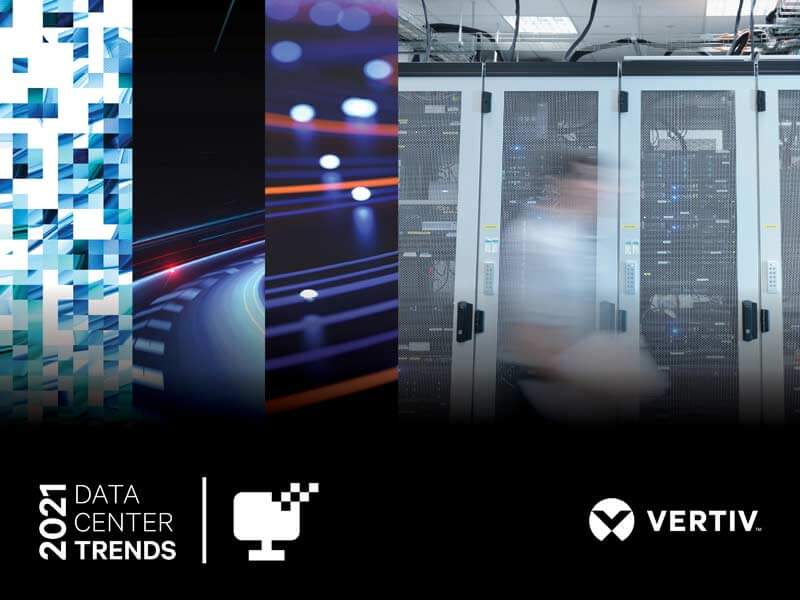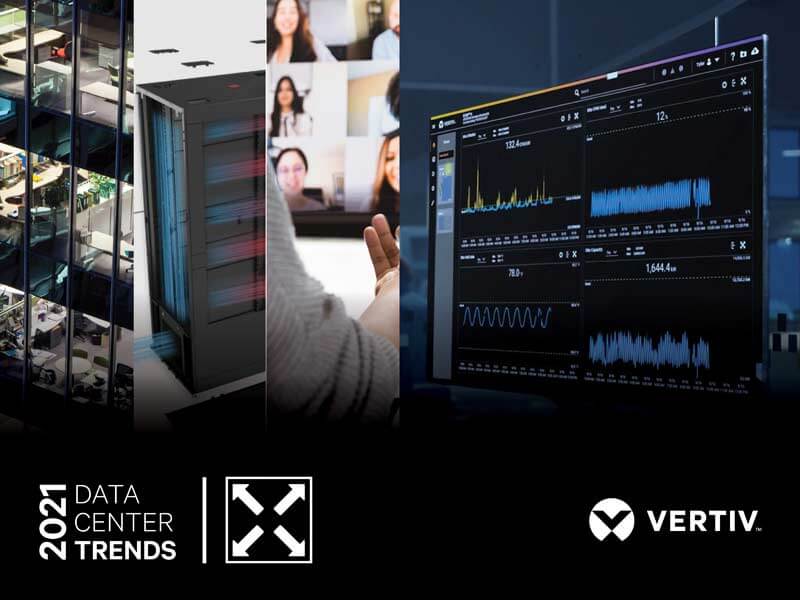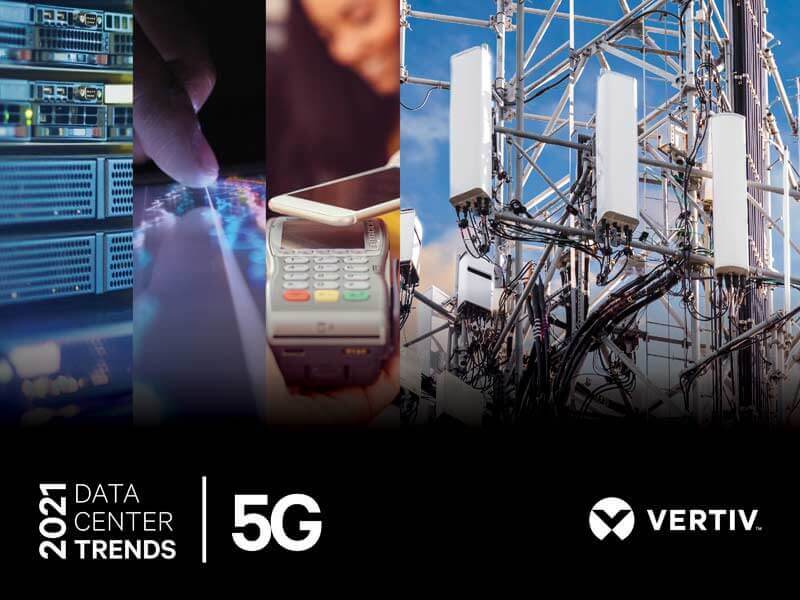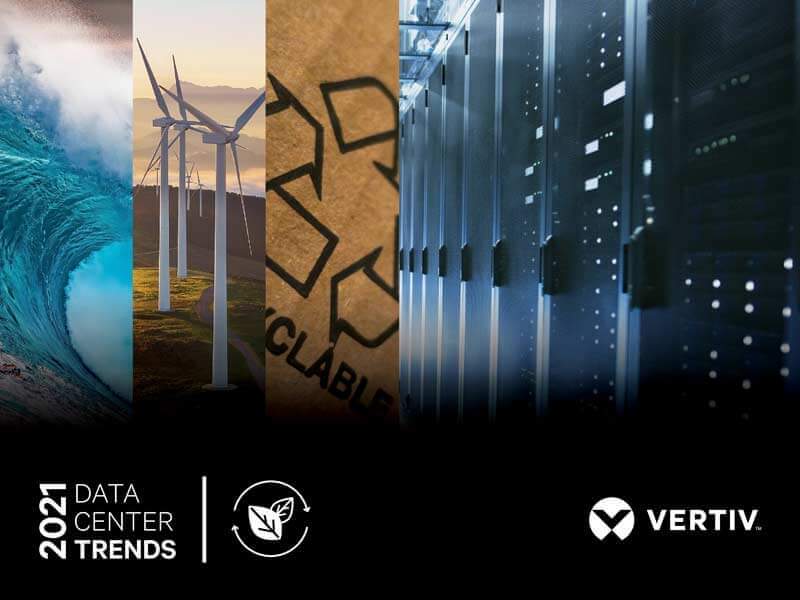Understanding data center trends is essential for companies deciding how to most effectively manage the digital infrastructure on which their businesses rely. In fact, this reliance on data centers has only grown as digitalization accelerates, in large part, as a response to unprecedented, pandemic-driven changes in data generation and usage.
Hearing from experts around the world helps owners and operators strategize by informing solution architecture, budget management, and broader operational goals. This is why Vertiv infrastructure and support experts have identified the following five trends predicted to impact your business in the coming year, if they haven’t already.

Utility-like criticality
Like other utilities, data center availability in previously underserved areas such as rural and remote locations is now the expectation, especially as working and schooling from home continue or become a common practice for more of the world’s population. This is yet another catalyst for data center expansion and network fortification as connectivity is paramount. In fact, the distinction between connectivity and availability (the traditional measure of data center uptime) will be erased, as you can’t have ready-to-use networks without strong, protected connections.

Digitalization on fast forward
The lifestyle shifts brought about by the global pandemic essentially established a new baseline for digital infrastructure, and investment in the IT ecosystem is expected to accelerate in order to enable more secure, reliable, and efficient remote work capabilities. In particular, data center owners and operators are now going to need better visibility into their increasingly distributed hybrid networks. Those who cautiously implemented monitoring hardware and software in the early stages of the pandemic to minimize the need for on-site service calls are likely to adopt these practices as part of long-term operations.

Bringing large data center capabilities to small spaces and
the edge
The increasing criticality of today’s edge has created the need for more complex architectures in order to function as an extension of core data centers. Now being much more than a simple IT closet, ensuring the availability of these critical spaces requires capabilities commonly seen among hyperscale or large enterprise data centers. These include increased use of system intelligence for better control and more focus on thermal management for improved energy efficiency.

The 5G conversation turns to energy consumption and efficiency
Most telecommunication service providers have been talking about the benefits of 5G for many years as the technology is expected to bring about unprecedented change for businesses and consumers. But as many countries start their 5G network rollouts in 2021, the conversation is expected to shift to 5G energy consumption and methods for improving energy efficiency. Realizing the promises of 5G requires a dense network that is estimated to increase energy demands 3.5 times more than 4G, causing providers to refocus on finding more efficient products and practices.

Sustainability comes to the forefront
5G is just one piece of the sustainability story that will be a key topic in the coming year and beyond. As the reliance on data centers (especially hyperscale facilities) accelerates, there will be increased scrutiny regarding energy and water usage. And given that the data center industry accounts for approximately 1% of global energy consumption, 2021 is likely to start a wave of infrastructure innovation especially in the area of thermal management.
For more information about how your data center can leverage these or other industry trends contact your local Vertiv office.
Featured Article

Vertiv Experts Foresee Utility-Like Criticality for Data Centers in 2021
NEWS RELEASE - As the world moved online seemingly overnight in the face of the COVID-19 pandemic, the criticality of data centers and the unrelenting reliance on them across all walks of life became an enduring storyline of the crisis.


